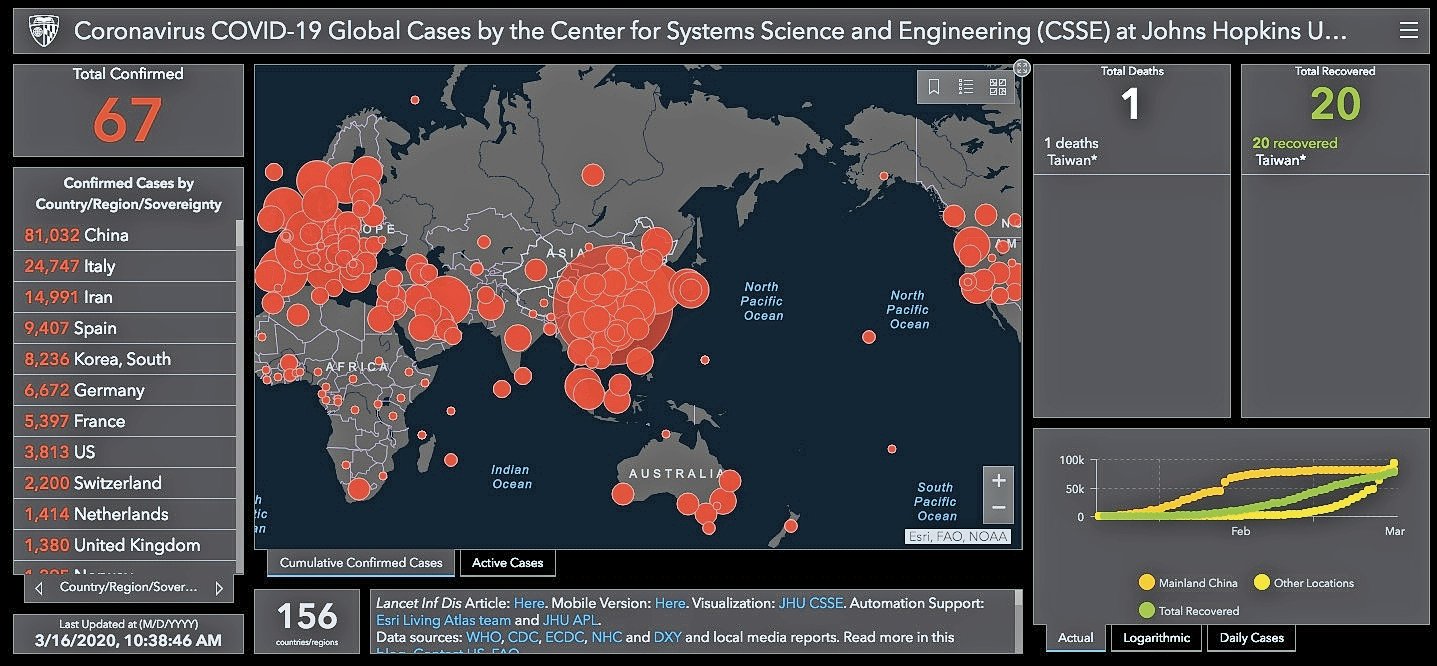Franklin Square, Elmont travel agents carry on, despite outbreak
A woman rushed in to Julie Cunningham’s travel agency off Dutch Broadway in Elmont on March 13, asking if she could cancel the vacation she had planned for July. It was the second time that day, Cunningham said, that she had to reassure one of her clients that the spread of a new strain of coronavirus may change over the next few weeks. That is, it might slow, or certain countries may come out of the crisis.
“I don’t want people to make a rash decision right now,” she explained. “The panic is right here at this moment.”
More than 20,000 flights were canceled globally in the first week of March, according to FlightStats.com, and President Trump announced on March 11 that he was drastically restricting travel to the United States from more than two dozen European countries.
The declaration was clarified to specify that the 30-day travel ban would apply only to foreign nationals who have visited the Schengen region — which includes Austria, Belgium, the Czech Republic, Denmark, Estonia, Finland, France, Germany, Greece, Hungary, Iceland, Italy, Latvia, Liechtenstein, Lithuania, Luxembourg, Malta, Netherlands, Norway, Poland, Portugal, Slovakia, Slovenia, Spain, Sweden and Switzerland. The United Kingdom and Ireland were included a few days later, and cruise ships have been suspended for 30 days.
After that announcement, Cunningham, the president of Julie’s Star Travel, said she received many calls from concerned clients. Some, she said, were afraid they would be quarantined when they returned home, as Trump said that any American citizens who had traveled to the Schengen Area would be “appropriately screened.” Others, meanwhile, worried about the status of their future trips.
“People were saying, ‘If they want to ban Europe, who’s to say they won’t ban my country?’” Cunningham recalled.
Some countries, however, have fewer cases than the United States. As of Monday, there were 3,813 cases reported here, with more than 100 in Nassau County. Countries such as the Dominican Republic, meanwhile, had just 11 confirmed cases.
To keep up to date with this information, Cunningham said she checks the Center for Systems Science and Engineering at Johns Hopkins University’s coronavirus global cases map every day. The map details how many cases each country has had, how many are still active and how many people have recovered.
Cunningham then directs her clients to do what is best for them. If they are older or have existing health conditions, she tells them to stay home, and she noted that she would not send her clients to any country where there are travel bans.
Some of her clients have also asked whether they should buy travel insurance, which Cunningham said they could do, although it would not cover cancelations made out of fear, which presents a problem for Cunningham and other travel agents. Each airline and supplier has its own policy regarding cancelations, and Cunningham said, “There’s only so much we could do.”
“I think agencies are caught between a rock and a hard place,” she said, adding that she charges a penalty for cancelations due to the differing policies.
Joanne Kreuscher, the owner of JDK Travel Inc. in Franklin Square, said she would not charge her clients for cancellations during the coronavirus outbreak, noting, “I’m just trying to be an advocate for my clients.”
She said she had “really beautiful, beautiful bookings” last September that have been canceled, and said that cruise lines have allowed clients to cancel voyages within two days of ships’ scheduled departures, and many airlines are offering customers credits for future flights.
“Everyone understands that this is not a good time to travel,” Kreuscher said of the vacation industry, adding that she and her fellow agents are just trying to “salvage what we can and protect what we can.”
Christian Svoboda, the manager of Franklin Square-based B4UBookIt, is helping his clients reschedule their trips or change them to countries without high numbers of coronavirus cases, such as South American countries and those in the Caribbean.
“We should be able to come through this,” he said. “It just depends how long it takes.”
Kreuscher was unsure, though. She has not made money this month, she said, and expects to lose the rest of the trips she had scheduled for March and April.
“I’m not thinking this is going to pass too quickly,” she noted, but said she thinks the industry will get through this as it did in the aftermath of the Sept. 11, 2001, attacks on the World Trade Center.

 55.0°,
Overcast
55.0°,
Overcast 




